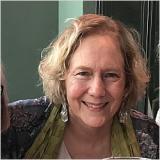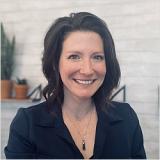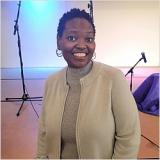Find a Therapist in Asheville, NC
There are a limited number of therapists in your area, but other distance therapists are available to help:
Not finding the right therapist? Search for therapists in Weaverville, Horse Shoe, or Mills River to expand your search.
Find a Therapist in Asheville, NC
Living in Asheville offers many advantages, from the stunning Blue Ridge Mountains to the vibrant arts scene that defines this unique North Carolina city. However, navigating life's challenges—whether related to work stress, relationship concerns, or personal growth—can benefit from professional support.
Asheville residents often seek therapy for anxiety, depression, relationship challenges, and work-life balance issues. The city's dynamic mix of long-time residents, newcomers drawn by the mountain lifestyle, and seasonal tourism workers creates diverse mental health needs that require personalized approaches.
Since 2007, GoodTherapy has been dedicated to connecting people with ethical, compassionate therapists who prioritize client confidentiality and work to eliminate the stigma surrounding mental health care. Our mission is to break down barriers and build bridges to accessible, quality mental health support.
Mental Health Support in Asheville
Many Asheville residents face unique stressors related to the area's growing economy, seasonal employment patterns, and the balance between preserving local culture while welcoming newcomers. These factors, combined with the region's higher-than-average suicide rates in western North Carolina, highlight the importance of accessible mental health resources.
The city's location in the Blue Ridge Mountains provides natural beauty that supports mental wellness, yet geographic isolation can sometimes limit access to specialized care. Our directory helps bridge this gap by connecting you with qualified professionals throughout the Asheville area and surrounding communities.
Therapy Approaches Available in Asheville
Asheville therapists utilize evidence-based approaches tailored to meet diverse community needs. Whether you're dealing with anxiety, depression, trauma, or relationship concerns, therapeutic methods are available to support your healing journey.
Cognitive Behavioral Therapy (CBT) helps identify and change negative thought patterns that contribute to anxiety and depression. This approach is particularly effective for professionals managing work stress or students navigating academic pressures in Asheville's educational community.
Solution-Focused therapy emphasizes building on your existing strengths and resources to create positive change. This approach resonates with many Asheville residents who value self-reliance and community resilience.
Psychodynamic therapy explores how past experiences influence current relationships and behaviors, offering deep insight for personal growth. Many find this approach helpful when processing major life transitions or family dynamics.
Specialized Services
Asheville therapists also offer specialized services including couples counseling for relationship challenges, family therapy to improve communication and resolve conflicts, and trauma therapy using approaches like EMDR to address past experiences that impact current well-being.
Finding Your Right Therapeutic Match
Our comprehensive directory makes it easy to find therapists who match your specific needs, preferences, and location within the Asheville area. You can search by specialty, insurance accepted, and therapeutic approach to find the right fit.
What to Consider in Your Search
When selecting a therapist, consider factors like their specialization areas, office location relative to your home or work, available appointment times, and whether they accept your insurance. Many Asheville therapists offer flexible scheduling to accommodate various work schedules common in the area's diverse economy.
To explore therapy options and understand what to expect, take time to review therapist profiles and consider scheduling initial consultations with providers who seem like potential matches.
Making Therapy Affordable
Understanding that cost can be a barrier to accessing mental health care, many Asheville therapists offer sliding-scale fees, payment plans, or accept various insurance plans. Don't let financial concerns prevent you from seeking support—many therapists are willing to work with clients to find affordable solutions.
Additionally, free counseling resources and community mental health services are available in the Asheville area, including the C3356 Comprehensive Care Center, which provides 24/7 psychiatric crisis support.
Expanding Your Search
If you're having difficulty finding the right therapist in Asheville proper, consider expanding your search to nearby communities. Many residents successfully work with therapists in surrounding areas, especially when seeking specialized services or specific therapeutic approaches.
Taking the First Step
Seeking therapy demonstrates strength and self-awareness. Whether you're facing a specific challenge or simply want to invest in your mental health and personal growth, professional support can provide valuable tools and insights.
Understanding therapy and taking that first step toward better mental health is an investment in your overall well-being. Start your search today to find a qualified therapist who can support your journey toward healing and growth in the beautiful mountain community of Asheville.
Related Resources
Find Therapists in Nearby Cities
Frequently Asked Questions
How do I find a therapist near me in Asheville, NC?
Use GoodTherapy's directory to search for licensed therapists in Asheville. You can filter by location, specialty, insurance accepted, and therapeutic approach to find providers who meet your specific needs and preferences.
What types of therapy are offered in Asheville, NC?
Asheville therapists offer various evidence-based approaches including Cognitive Behavioral Therapy (CBT), Solution-Focused therapy, Psychodynamic therapy, EMDR for trauma, couples counseling, family therapy, and specialized treatments for anxiety, depression, and relationship issues.
How much does therapy cost in Asheville, NC?
Therapy costs in Asheville vary by provider and service type. Many therapists offer sliding-scale fees, payment plans, and accept insurance. Contact therapists directly to discuss pricing options and find affordable solutions that fit your budget.
Can I find therapists who accept insurance in Asheville, NC?
Yes, many Asheville therapists accept various insurance plans. Use our directory's insurance filter to find providers who accept your specific coverage, or contact therapists directly to verify insurance acceptance and coverage details.
What mental health issues do therapists in Asheville commonly treat?
Asheville therapists commonly treat anxiety, depression, relationship challenges, work-life balance issues, trauma recovery, family conflicts, and adjustment difficulties. Many also specialize in areas like couples counseling, addiction recovery, and grief counseling.









